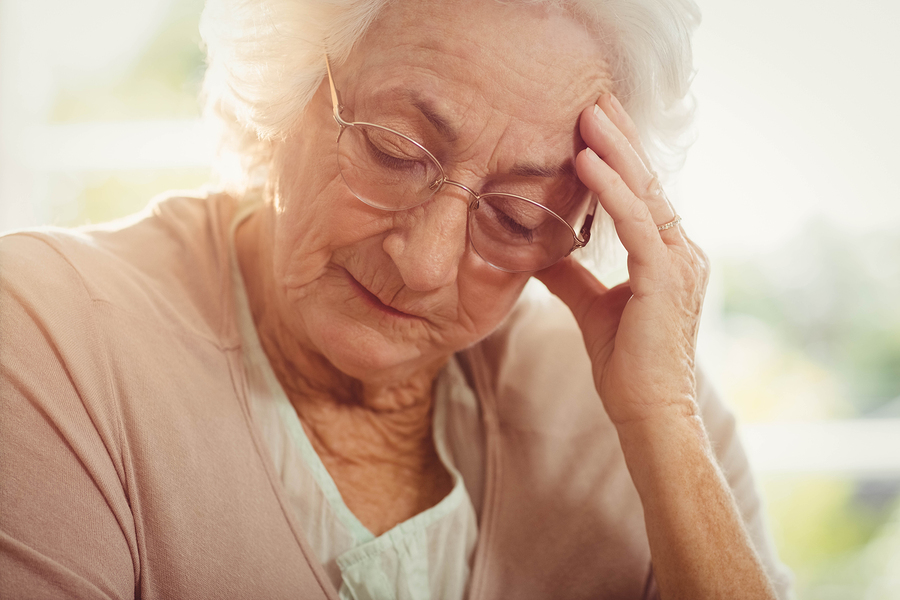
The incapacitating headaches known as migraines can seriously lower one’s quality of life, which is why learning how to avoid migraine triggers is important for everyone, especially seniors who might already be dealing with other medical conditions and chronic pain. With elder care support, they can learn which triggers affect them and create a plan to avoid those triggers and remain migraine-free.
Medication Issues
As mentioned, seniors are frequently diagnosed with conditions that may result in chronic pain. Unfortunately, this might lead to overuse of painkillers, such as non-steroidal anti-inflammatory medicines (NSAIDs), or even migraine-specific treatments, such as triptans. Because of this overuse, medications meant to relieve pain may actually make headaches worse.
Sleep Issues
Among older adults, sleep difficulties are not uncommon. Migraine sufferers may have irregular sleep cycles, sleeplessness, or even oversleeping, which is why it’s critical to maintain a regular sleep routine. This involves creating a peaceful sleeping environment, managing sleep disorders with the assistance of a healthcare professional, and going to bed and waking up at the same time every day.
Food Issues
There are specific meals and drinks that can cause migraines. Since dietary habits often alter in seniors as a result of decreased appetite, dietary restrictions, or taste alterations, it’s good to know what these food triggers are. Some of the most common ones are listed below:
- Coffee: Both excessive use or abrupt withdrawal from the stimulant might lead to migraines.
- Alcohol: Seniors should be mindful of their alcohol intake, especially beer and red wine.
- Foods Containing Artificial Sweeteners: Foods that contain artificial sweeteners like aspartame, nitrates, or MSG (monosodium glutamate) might trigger migraines.
- Cured Meats and Aged Cheeses: Both cured meats and aged cheeses contain tyramine, which in certain people can cause migraines.
- Dehydration: While not a food per se, dehydration is more common among seniors because of things like reduced thirst, medications that make them use the bathroom more frequently, and long-term medical issues. Migraine prevention requires regular fluid intake and careful monitoring of hydration levels. Also, for seniors who have trouble drinking throughout the day, elder care may suggest foods that are high in water content, such as watermelon and cucumbers.
Weather Fluctuations
Migraine sufferers may experience changes in weather, especially variations in barometric pressure. Seniors who get frequent migraine attacks should be aware of how different weather patterns impact them and take precautions to avoid them, such as remaining inside during severe weather or taking preventive medicine if recommended.
Concurrent Medical Disorders
Many comorbid health disorders, such as diabetes, hypertension, or arthritis, are common in seniors and can have an indirect impact on migraine patterns. It’s critical to treat these illnesses properly. Additionally, some chronic diseases may require the use of medications that have the potential to cause migraines as a side effect.
Helping Seniors Manage Migraines
Elder care can help seniors create a migraine management plan that is tailored to their needs. This might include adopting healthy lifestyle choices, such as ensuring regular exercise, eating a diet rich in nutrients, and staying hydrated—as mentioned above.
Also, home care can talk with seniors about their sleep routine and offer suggestions that may help, such as limiting activities that are stimulating as the evening wears on or incorporating apps that might help them fall asleep faster.
Finally, if seniors continue to suffer from migraines, they should talk with their medical team.
Seniors can enhance their general quality of life and more effectively manage their migraines by avoiding these possible triggers.
Sources:
https://www.webmd.com/migraines-headaches/avoiding-migraine-triggers
The staff at Home Care Matters is available to talk with you and your family about all of your needs. Home Care Matters is a home care agency providing quality and affordable elder care in Duluth, GA, and the surrounding areas. Call (770) 965-4004 for more information.
We provide elder care in Braselton, Buford, Dacula, Duluth, Flowery Branch, Gainesville, Johns Creek, Lawrenceville, Oakwood, Sugar Hill, Suwanee, Barrow County, Forsyth County, Gwinnett County, Hall County, Jackson County, North Fulton County.
Valerie has the unique experience with home care as she has experienced it from both ends of the spectrum, as a caregiver and as needing care herself as a cancer survivor. Valerie says, “Taking care of someone you love is a physically, mentally and demanding labor of love.Taking care of my mom was the hardest thing I have ever done. It has given me an insight and perspective not many people understand unless you are doing it or have done it.I loved taking care of my mom.I love helping others take care of their love ones too.And now that I’ve been sick, it’s given me a whole new level of empathy and understanding for those who are sick and need help.”
Valerie’s schedule varies daily, but she loves visiting with our clients, families, caregivers, our network partners and being in the office.Says Valerie, “Every day is different, but I wake up excited about what we do, inspired by our team, clients and caregivers.I strive to be a resource to the community.I love my team and I love what we do every day. I like to think my mom would be proud.”
You can reach Valerie by email (Valerie@homecarematters.com) or in our office (770.965.4004).
- How In-Home Alzheimer’s Care Helps Your Parent Stay Safe and Comfortable - December 26, 2025
- After the Fall: How Home Care Helps Seniors Recover Safely at Home - December 19, 2025
- Supporting Seniors with Memory Challenges Through Compassionate Senior Home Care - December 12, 2025
